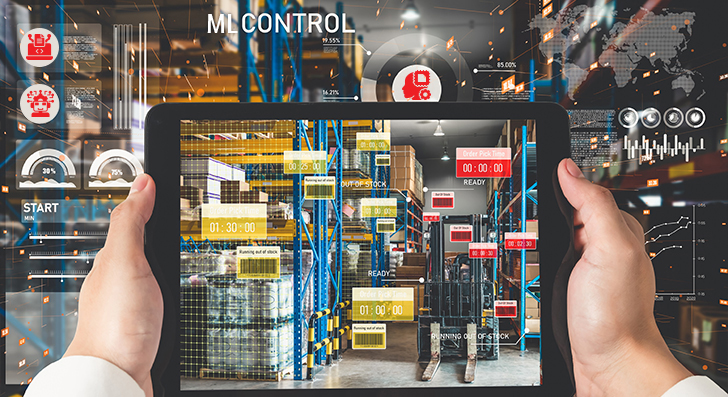From watching Netflix movies to consumer purchases to business transactions, data is the lifeblood of many business endeavors today. It plays an indispensable role in decision-making and fuels company growth and development. Organizations apply data-driven insights to optimize their workflows and develop fail-proof strategies for the future.
Nonetheless, businesses often struggle to process immense volumes of unstructured, raw data while striving to leverage the capabilities of AI-powered automation. For AI to make accurate predictions or recognize patterns, annotated data is a must to build effective ML models for a wide gamut of processes, businesses, and industries. In essence, data annotation plays a pivotal role in training and improving algorithms.

Current State of Data Annotation
In the ever-evolving landscape of Artificial Intelligence and Machine Learning, the importance of annotated data is only following an upward trajectory. As per research, the global data collection and annotation market is projected to be worth USD 3.6 billion by 2027, expanding at the compound annual growth rate of 33.2%. In 2022, the market was worth USD 0.8 billion.
Such upsurge is due to the rapid growth of data, which has necessitated businesses to learn how to deal with huge volumes of training datasets. Big Data, which is one of the most influential trends has emerged consequently. This Big Data along with the ongoing advances in AI, ML, and other solutions created to handle humongous volumes of data directly impacts the development of the data annotation industry.
Data Annotation Industry Forecast: Trends Reshaping the Future
The increasing demand for data annotation is primarily due to the growing use of Machine Learning algorithms in research and other commercial applications across a range of segments including healthcare, manufacturing, security, and surveillance, etc.
Furthermore, the latest data annotation trends will bridge the gap between supervised and unsupervised learning–the two most fundamental methods of ML. As AI is fundamentally a hybrid of these two methods, the shift to unsupervised Machine Learning will establish a new and advanced paradigm in data science.
Rapidly developing as a brand-new industry, there are numerous fascinating things in data annotation to look forward to in 2023 and beyond:
-
Growing Demand for Industry-specific Annotation Solutions
One of the prominent trends to be seen in the data annotation market is the mounting demand for industry-specific annotation solutions. As AI/ML applications become more specialized across various sectors such as automotive, healthcare, finance, agriculture, etc., there’s a need for data annotation services tailored to the unique needs of each domain.
For example, in medical image annotation, precise labeling of X-rays, MRIs, and CT scans is crucial for AI-assisted diagnosis. Therefore, businesses are gradually seeking annotation providers with expertise in their specific industry to get high-quality and precisely labeled data for their AI projects.
-
Semi-automation Making Significant Inroads
Automation has been a longstanding goal in data annotation processes, and the year 2023 is slowly witnessing a significant shift towards semi-automation. Though fully automated annotation is still a challenge in the case of complex tasks, leveraging AI-powered annotation tools is slowly gaining traction as they help streamline and accelerate the process. Other than enhancing process efficiency, this trend reduces human error significantly, making it a cost-effective solution for all businesses.
-
Ethical Considerations and Bias Mitigation
Ethical AI and bias mitigation are gaining paramount importance. In a similar vein, there’s an increasing emphasis on ethical data annotation practices, which means that there’s fairness, transparency, and impartiality in the procedure. Potential biases introduced via manual labeling, as every human annotator has subjective views, values, and opinions, can exacerbate existing social inequalities by resulting in discriminatory outcomes.
Data annotation companies are adopting guidelines and implementing best practices to ensure transparency, fairness, and inclusivity in AI systems. They are also investing in solutions that help identify and mitigate biases in annotated datasets, contributing to the development of responsible AI.
-
Augmented Reality (AR) and Virtual Reality (VR) Annotation
The growth of AR and VR technologies has opened doors for data annotation that lead to the spatial computing domain. In AR and VR annotation, objects and scenes in immersive environments are labeled, which is central for applications such as augmented reality glasses, autonomous vehicles, and virtual training simulations.
-
Multi-modal Annotation on the Upswing
Multi-modal AI is gaining momentum and this trend is expected to reshape the data annotation landscape in the coming years. It combines different data types like image, audio, video, and text. Businesses are looking for a reliable data annotation company capable of labeling data across various modalities to support the development of advanced AI models that can understand and process information from diverse sources.
-
Enhanced Data Security and Privacy Measures
The importance of data security and privacy cannot be overstated, especially in light of increasing data breaches and regulatory scrutiny. Thus, there’s a dire need to strengthen data security and privacy measures for data annotation. As a safety measure, annotation providers are implementing robust encryption protocols, access controls, and compliance with data protection regulations such as GDPR and CCPA.
Closing Thoughts
The data annotation in Machine Learning has a promising future and the data annotation market is poised for significant growth and transformation in the years to come. Industry-specific annotation services, semi-automation, AR and VR annotation, multi-modal annotation, ethical considerations, and data security, are the top trends influencing this dynamic landscape. These trends underscore the critical role of data annotation in enabling the development of robust and responsible AI/ML applications across a myriad of industries.
As businesses continue to harness the power of AI, staying abreast of these trends and partnering with reliable data annotation service providers will be essential for success in the evolving AI ecosystem. The ability to adapt to these trends and pull them to your advantage will not only enhance the quality of your AI models but also position your business as a leader in the data-driven era.


No comments yet